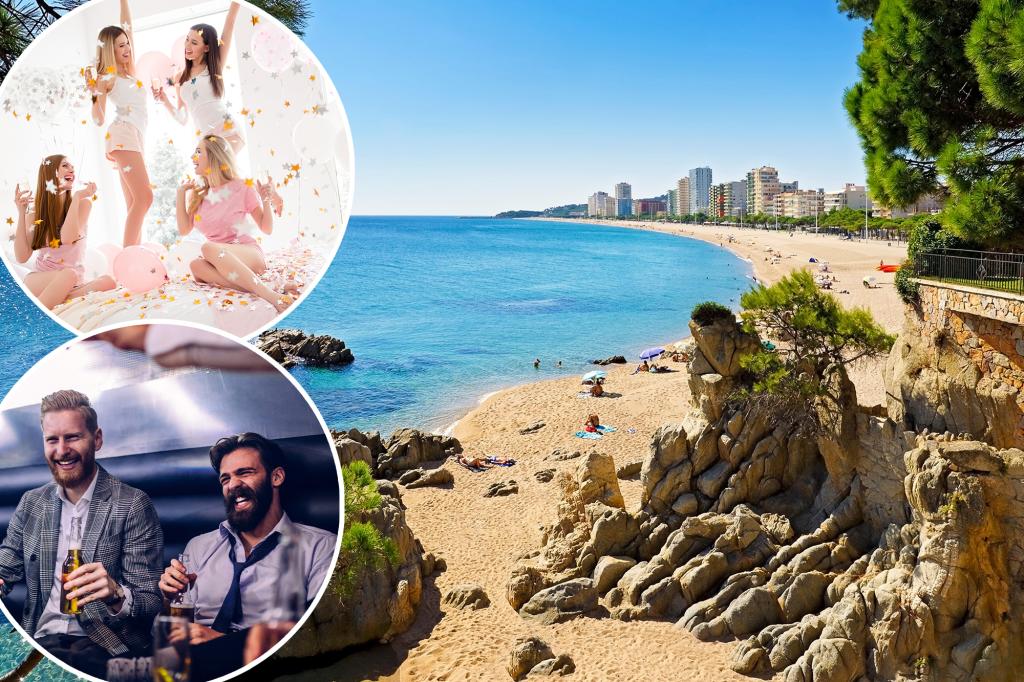The town of Platja d’Aro, located in Spain along the Costa Brava, has banned lewd and obnoxious behavior typically associated with traditional pre-wedding celebrations for bachelors and bachelorettes. This decision was made in response to the wild antics of partygoers flocking to the destination to celebrate before tying the knot. The town leaders have implemented fines for inappropriate behavior, such as being in public spaces without clothing, wearing clothing that represents human genitals, or engaging in disruptive activities. These fines aim to deter rowdy and raunchy celebrators from causing disturbances in the town. Platja d’Aro is a popular spot for wedding parties and sees a significant increase in visitors during the summer months.
The new regulations in Platja d’Aro were put in place ahead of the town’s busy season, which typically lasts from spring to early summer when wedding parties frequent the seaside destination. These rules aim to control the behavior of visitors and prevent them from engaging in activities that disturb local residents. The city’s police chief highlighted a recent incident where a groom was taped to a lamp post while his friends played loud music, causing annoyance to locals. The fines for inappropriate behavior, including walking around partially clothed or engaging in disruptive activities, are meant to maintain order and preserve the town’s reputation as a tourist destination.
While Platja d’Aro has cracked down on lewd behavior during pre-wedding celebrations, some towns have embraced it. An Italian beach town, Benas beach, located on Sardinia’s west coast, has announced plans to host naked weddings on their sands. The local mayor hopes that offering unique wedding celebrations, such as naked weddings, will attract more tourists to the area. The contrast between towns like Platja d’Aro, which are trying to discourage wild behavior, and those like Benas beach, which are embracing unconventional weddings, highlights the diversity in approaches to tourism management among different destinations.
The restrictions in Platja d’Aro are not unique, as many Spanish towns are facing challenges with rowdy visitors and overtourism. The influx of visitors during peak seasons can strain local resources and affect the quality of life for residents. By implementing fines for inappropriate behavior and cracking down on disruptive activities, these towns aim to maintain order and preserve the local community’s well-being. While some destinations may choose to embrace unconventional forms of tourism, others prioritize the need to control behavior and protect the town’s reputation as a tourist spot. The balance between catering to tourists’ desires and ensuring the well-being of local residents is a common challenge faced by many popular destinations.
The decision to ban lewd behavior in Platja d’Aro reflects the town’s efforts to address the negative impact of rowdy celebrators on the local community. By setting fines for inappropriate conduct and cracking down on disruptive activities, the town leaders hope to maintain order and ensure a pleasant experience for both residents and visitors. As the town prepares for its busy season, it is taking proactive measures to discourage behaviors that may disturb the peace and tranquility of the area. The contrast between towns that embrace unconventional tourism practices and those that prioritize community well-being underscores the complexity of managing tourism in popular destinations.


